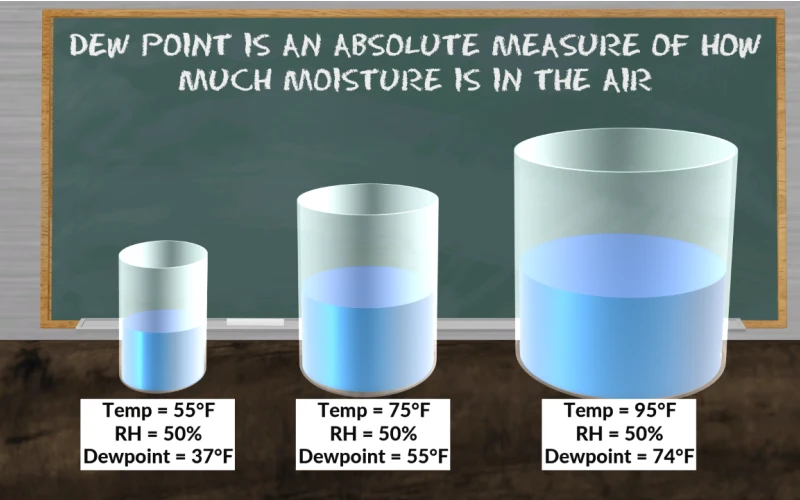
# High Dew Point Conditions and Their Impact on Human Comfort
Understanding Dew Point
The dew point is the temperature at which air becomes saturated with water vapor, leading to condensation. When we talk about high dew point conditions, we’re referring to situations where this temperature is elevated, typically above 65°F (18°C). These conditions create a muggy, sticky atmosphere that can significantly affect how we perceive our environment.
How High Dew Point Affects Human Comfort
High dew point conditions have several direct impacts on human comfort:
- Reduced evaporative cooling: When dew points are high, sweat doesn’t evaporate as efficiently from our skin, making us feel hotter than the actual temperature suggests.
- Respiratory discomfort: The heavy, moisture-laden air can make breathing more difficult, especially for those with respiratory conditions.
- Sleep disturbances: High humidity at night prevents proper temperature regulation, leading to restless sleep.
- Increased fatigue: The body works harder to cool itself in high dew point conditions, leading to quicker exhaustion.
The Heat Index Factor
Meteorologists often use the heat index to describe how high dew points combine with air temperature to affect perceived warmth. For example:
| Air Temperature | Dew Point | Heat Index |
|---|---|---|
| 90°F (32°C) | 70°F (21°C) | 97°F (36°C) |
| 90°F (32°C) | 75°F (24°C) | 105°F (41°C) |
As shown, even small increases in dew point can dramatically increase the heat index and perceived temperature.
Health Risks Associated with High Dew Points
Prolonged exposure to high dew point conditions can lead to several health concerns:
Heat-Related Illnesses
Heat exhaustion and heat stroke become more likely when the body cannot effectively cool itself through evaporation.
Cardiovascular Stress
The heart works harder to pump blood to the skin’s surface for cooling, putting extra strain on the cardiovascular system.
Dehydration
People may not realize how much fluid they’re losing through perspiration in humid conditions, leading to dehydration.
Coping Strategies for High Dew Point Conditions
When facing high dew point weather, consider these strategies to maintain comfort:
- Stay hydrated by drinking water regularly, even if you don’t feel thirsty
- Wear loose, lightweight, and light-colored clothing
- Use air conditioning or fans to improve air circulation
- Limit outdoor activities during the hottest parts of the day
- Take cool showers to help lower body temperature
Conclusion
High dew point conditions create challenging environmental circumstances that significantly impact human comfort and health. By understanding these effects and implementing appropriate coping strategies, we can better manage our wellbeing during periods of high humidity. Paying attention to dew point forecasts along with temperature can help you prepare more effectively for uncomfortable weather conditions.
Keyword: high dew point